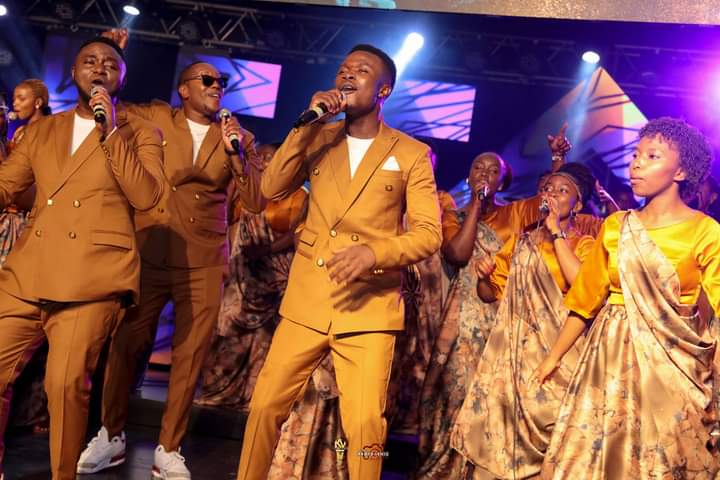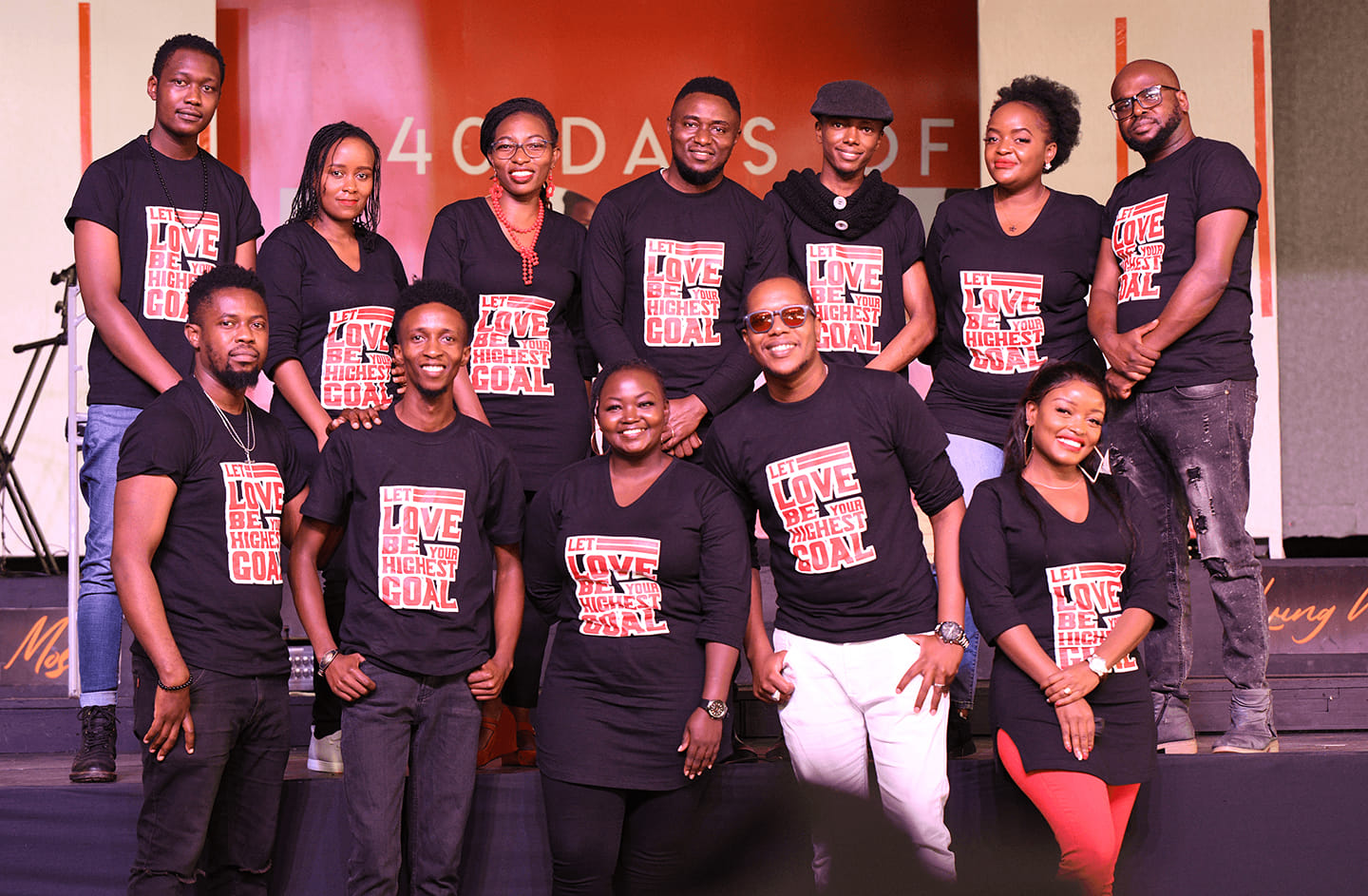Church band gone viral: from singing on a church stage to getting radio airplay, TV appearances and concert perfomances – this is the story of Karura Voices. The award winning band is an embodiment of a new era in Kenyan gospel music, one driven by live, authentic, and more so church-appropriate music.
Listen to any Karura Voices song, and you can tell there’s a distinctive character in their music.
The Karura Voices Distinction
First off is the song writing:
The thing with Karura Voices songs is substance. You could take out the music, the video, and all the hype, but still, the words remained meaningful, like a sermon. You might think the music carries the words. But in this case, the music levitates on the substance of the words.
The songs speak to your soul, right before the hype kicks in, and that makes for great gospel music.
Second is the production:
Their music arrangement bleeds of expertise – well thought intros, breakdowns, riffs, outros, name all. The distinction is in how all these auger into a song, giving it character. To this, you will catch Pitson interject mid-song, “Band asanteni sana!” On set too, you can see how the good music jazzes everyone.
Such is the production that turns music into memorabilia. There’s definitely no putting price on a skillful band.
Origins
Karura Voices is the resident band and worship team at Karura Community Chapel, a non-denominational church based in Nairobi.
The band is flanked by accomplished musicians like Peterson Githinji alias Pitson, Bire, and guitarist Isaac Mugunda. In overall, it’s a youthful and skillful band.
The band debuted in 2020 with the album ‘Wimbo wa Sifa’, with studio-recorded tracks, and live versions recorded during Karura Community Chapel’s online revival concert in 2020.

As of the time of publishing, Karura Voices has three albums:
- Wimbo Wa Sifa – 2020 – featuring songs like Kwako
- Momentum – 2021 – featuring songs like Nitakaa Nawe
- There Is A Fire – 2023 – In the album is the popular Nena song.
Key Personnel
At the helm of the band is Peterson Githinji, alias Pitson, now Executive Pastor at Karura Community Chapel. Before Karura Voices, Pitson was a high flying gospel hitmaker.
Pitson is often flanked on Karura Voices by his long time confidant, Bire the vocalist. Bire is an accomplished musician as well, with an album Wimbo Wangu, multiple singles and collabs.
Njoki Munyi, now a recording and performing artist, has been in the band since its inception. She also serves at Ruach Rivers Church Ruaka.
Lizz Korir, a long-serving vocalist at Karura Voices features in collabs with Jane Aller, and Thomas Myagila. Lizz also serves at Life Church Limuru.
Musical reforms
Over the decades, Kenyan gospel has seen many changes.
On the days of Mary Otieno’s ‘Adamu na Eva’, gospel took the form of old school church choir. The Kassangas were also popular hit makers.
Gospel music slightly evolved, with artists like Rufftone blending Raggamuffin and Luhya on hits like Tsinyanga Tsiwere and Mwikulu.
Following up were the days of Esther Wahome’s ‘Kuna Dawa’, Ruth Wamuyu’s ‘Amukira Ngatho’, and Joan Wairimu’s ‘Kunywa Maji’.
A significant change happened around 2009, when Kenyan gospel music took on a more contemporary outfit, with hits like Daddy Owen’s ‘System ya Kapungala’ – a fusion of Kapuka and Lingala, and ‘Kupe De Kalle’. The crossover to other genres in gospel music caught on, and many artists began to adopt varied styles into gospel.
For a while, gospel has maintained this outfit. The most recent wave in gospel music has been dance songs, like Bazokizo, Vimbada, and Odi Dances.
Congregational music in Kenya
All along, one genre was left out – congregational music, more so live congregational music. South Africa largely pioneered live music in Africa, with songs like ‘Tambira Jehova’ of Joyous Celebration. Sooner afterwards, Nigeria caught on, with worldwide hits like Sinach’s Way Maker.
Artists like John Lisu of Tanzania spearheaded live music in East Africa. Lisu’s ‘Jehovah Yu Hai’ was a remarkable pioneering live recorded song.
It wasn’t until the late 2010s when live congregational music began to emerge and take eminence in Kenya. Renown gospel artists like Eunice Njeri and Evelyn Wanjiru took on live album recordings. Groups like Stories and Songs emerged, furnishing fans with live worship music.
Live congregational music is now taking dominance, and Karura Voices might just be at the forefront.
Pitson has on multiple occasions mentioned that the band is raising a church sound, putting out songs that can not only be sung in churches, but also minister to anyone that listens.


Raising a sound that indwells the presence of Christ Jesus. That ministers to the hearts of Men and their minds are renewed for the Love of the Creator. May God’s Grace abound towards this endeavor. Congratulations.